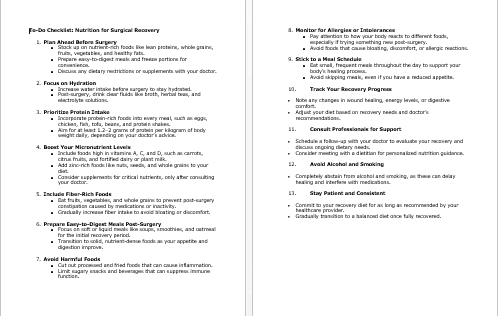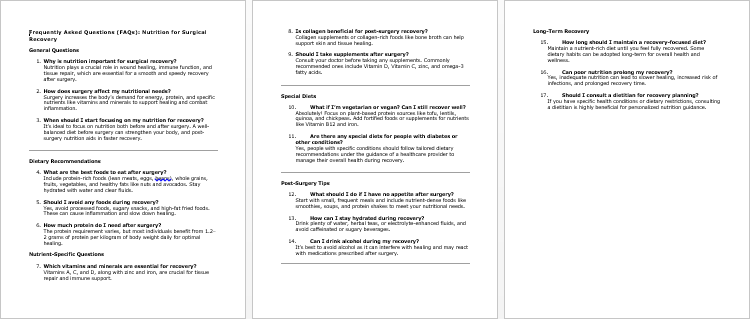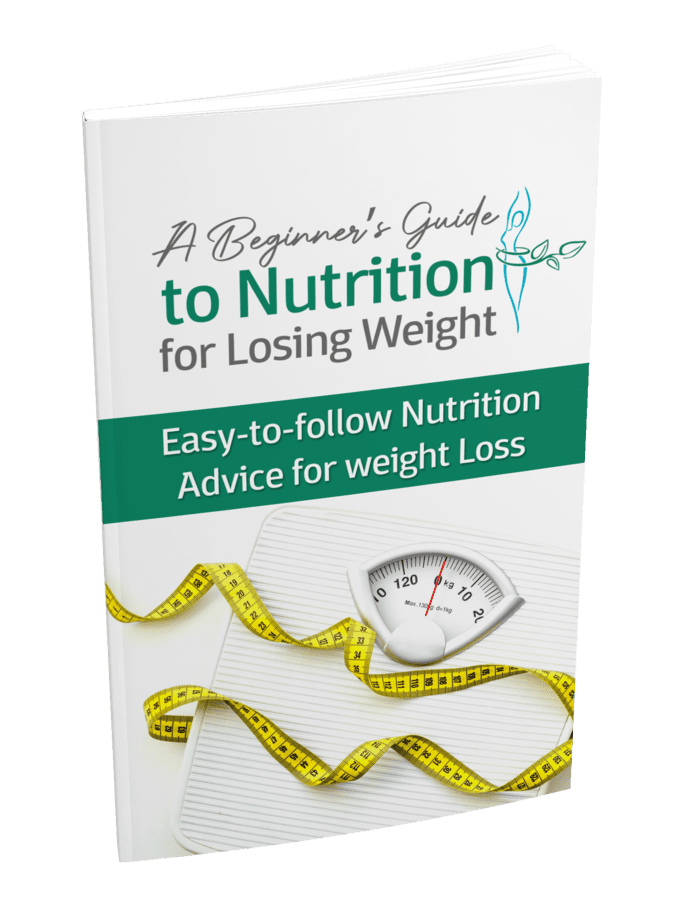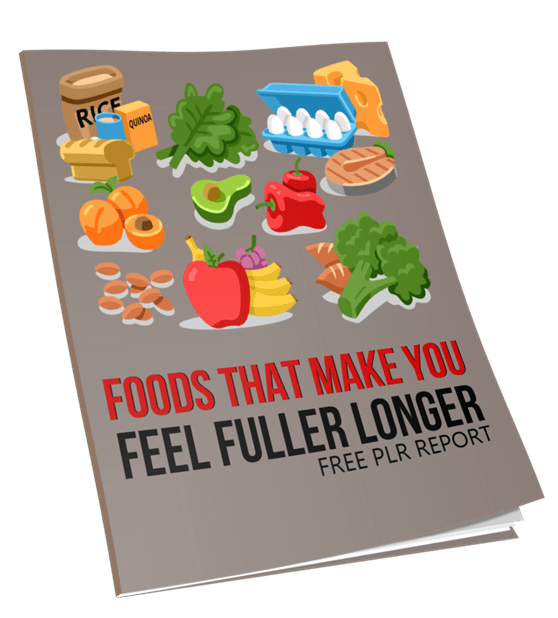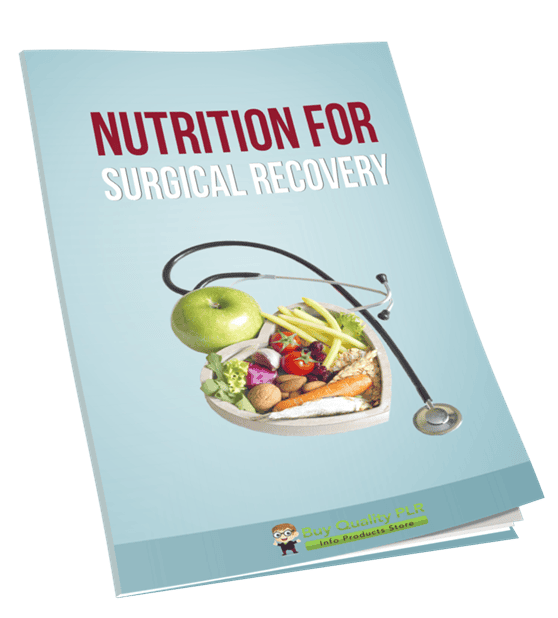
Nutrition for Surgical Recovery PLR Course 52k Words
in Health PLR , Health PLR eBooks , Nutrition PLR , PLR Checklists , PLR eBooks , PLR eCourses , Premium PLR , Premium PLR eBooks , Premium PLR Reports , Premium White Label Brandable PLR Coaching Courses , Private Label Rights ProductsChoose Your Desired Option(s)
has been added to your cart!
have been added to your cart!
#nutrition #nutritionrecovery #plrcourse #surgicalrecovery #healthguidance #nutritioneducation #resellrights #wellnesscontent #recoverysupport
Unlock the Secrets to Optimal Surgical Recovery with the Power of Nutrition
Are you looking for a complete, well-researched, and ready-to-sell PLR course that educates your audience on the vital role nutrition plays in surgical recovery? The “Nutrition for Surgical Recovery” PLR Course is your answer! Packed with over 51,000 words of high-quality content, this course provides an in-depth guide to enhancing recovery through tailored nutrition strategies.
Whether your audience is preparing for surgery, recovering post-procedure, or supporting loved ones through their journey, this course delivers actionable, life-changing insights.
Presenting…
Nutrition for Surgical Recovery PLR Course 52k Words
Why Choose This PLR Course?
- High-Quality, Comprehensive Content
This course covers everything from pre-surgery preparation to long-term recovery strategies. Each module is packed with practical advice, science-backed insights, and detailed meal plans. - Customizable and Ready-to-Sell
Use the content as it is or tailor it to fit your niche. Sell it as a standalone course, break it into smaller guides, or bundle it with other offerings. - Valuable Add-Ons
Includes a Checklist, FAQs, and Recipes eBook to enhance the value of your course. - Taps Into a Growing Market
Nutrition and recovery-focused content is in high demand. This course positions you as an authority in a niche with immense profit potential.
What’s Inside the Course?
Module 1: Introduction to Nutrition in Surgical Recovery
- Learn the critical role of nutrition in the healing process.
- Understand how nutrients like collagen, amino acids, and hydration impact recovery.
- Discover the phases of wound healing and how to support each phase nutritionally.
Module 2: Pre-Surgery Nutrition (Days 1-3)
- Detailed meal plans to prepare the body for surgery.
- Recipes featuring collagen-boosting and hydration-rich foods like bone broth and antioxidant-packed smoothies.
Module 3: Post-Surgery Nutrition (Days 3-7)
- Focus on hydration, skin repair, and immune support.
- Easy-to-digest meal ideas that promote healing and reduce inflammation.
Module 4: Advanced Recovery Nutrition (Days 7-14)
- Protein-packed meals for tissue regeneration.
- Anti-inflammatory foods like omega-3-rich salmon and leafy greens to enhance recovery.
Module 5: Long-Term Recovery Nutrition (Days 14-30)
- Strategies for maintaining hydration and skin elasticity.
- Recipes and meal plans for long-term healing and health maintenance.
Module 6: Key Nutrients for Recovery
- Deep dive into the role of collagen, omega-3 fatty acids, and antioxidants.
- Practical advice for incorporating these nutrients into daily meals.
Module 7: Special Considerations for Recovery
- Dietary adjustments for complications such as infection or delayed healing.
- Guidance on supplements like Vitamin C, Zinc, and Omega-3s for optimal recovery.
Module 8: Building a Long-Term Nutrition Plan
- Sustainable eating strategies to promote overall health and wellness.
- Final tips and actionable advice for a smooth recovery journey.
Who Can Benefit from This Course?
- Health and Wellness Coaches: Add this to your library of resources for clients recovering from surgery.
- Nutritionists and Dietitians: Offer this course to patients as a supplemental guide.
- Content Creators and Marketers: Use this PLR content to create blogs, lead magnets, or email series.
- Healthcare Professionals: Educate patients with easy-to-follow meal plans and tips.
What’s Included in the PLR Package?
- Full 51,000+ Word Course
- Complete, ready-to-sell modules that guide your audience step-by-step through surgical recovery.
- Checklist
- A handy guide to help learners track their nutrition and recovery progress.
- FAQs
- Detailed answers to common questions about surgical recovery and nutrition.
- Recipes eBook
- Delicious, nutrient-packed recipes to support collagen production, wound healing, and hydration.
- Customizable Templates
- Pre-designed meal plans and supplement guides for added value.
How Can You Profit from This Course?
- Sell It As-Is: Offer the course to your audience for $47-$97.
- Break It Into Smaller Guides: Create mini-reports, blogs, or videos from individual modules.
- Bundle It with Other Products: Combine with fitness or health guides to boost value.
- Use It for Lead Generation: Offer excerpts as free resources to build your email list.
- Monetize Through Membership Sites: Add it to a membership program for recurring revenue.
What Makes This Course Stand Out?
- Expert-Level Content: Comprehensive, well-researched information tailored to real-world needs.
- Actionable and Practical: Includes recipes, meal plans, and tips that learners can implement immediately.
- Engaging and Easy to Follow: Designed for readers of all levels, from beginners to professionals.
Don’t Miss This Opportunity
Invest in the Nutrition for Surgical Recovery PLR Course today and provide your audience with the knowledge they need to heal faster, feel better, and achieve optimal results after surgery.
Price: $14.99
Take the first step toward creating a valuable product that empowers your audience and grows your business.
has been added to your cart!
have been added to your cart!
Here A Sample of Nutrition for Surgical Recovery PLR Course
This course is designed to guide individuals preparing for surgery and those recovering from surgery, providing key insights on the nutritional needs for optimal recovery. The focus will be on promoting collagen production, skin health, wound healing, and hydration. Whether you’re preparing for a cosmetic procedure, major surgery, or recovering from an injury, this course will teach you how to nourish your body with foods and nutrients that support recovery, reduce inflammation, and improve overall skin health.
Module 1: Introduction to Nutrition in Surgical Recovery
Lesson 1.1: The Role of Nutrition in Surgery and Recovery
Importance of Pre- and Post-Surgery Nutrition
Proper nutrition is crucial before and after surgery to support healing, minimize complications, and promote recovery. Here’s why:
1. Pre-Surgery Nutrition
Pre-surgery nutrition focuses on preparing the body for the stresses of surgery. The goal is to optimize the body’s ability to heal, maintain strength, and support the immune system. Key benefits include:
- Enhanced Immune Function:
Proper nutrition ensures that the immune system is strong and ready to fight off infections. Nutrients like vitamin C, zinc, and protein play a crucial role in boosting immune function and reducing the risk of post-surgical infections. - Improved Collagen Production:
Collagen is essential for wound healing, skin repair, and tissue regeneration. Foods rich in vitamin C, amino acids, and copper promote collagen synthesis, making recovery smoother and faster. - Increased Energy Reserves:
Surgery can be taxing on the body, so having enough energy reserves from healthy fats, complex carbohydrates, and protein helps the body endure the stress of surgery and the healing process. - Reduced Inflammation:
Anti-inflammatory foods, including omega-3 fatty acids and antioxidants, can reduce the body’s inflammatory response to surgery, helping to minimize swelling, bruising, and discomfort post-surgery. - Hydration Support:
Hydration is key for maintaining fluid balance, which helps with circulation, detoxification, and the removal of waste products during recovery. Drinking adequate water and consuming hydrating foods can reduce the risk of complications and enhance recovery. - Muscle Preservation:
Prior to surgery, having adequate protein intake helps maintain muscle mass, preventing muscle loss that might occur from reduced mobility or prolonged bed rest post-surgery.
2. Post-Surgery Nutrition
Post-surgery nutrition is focused on supporting the healing process, reducing complications, and optimizing recovery. Proper post-operative nutrition aids in faster recovery and reduces the risk of infection, scarring, and other post-surgical complications. Key benefits include:
- Wound Healing and Tissue Repair:
Protein is essential for rebuilding tissues, while vitamin C, zinc, and copper play vital roles in tissue regeneration and collagen formation. Consuming a high-quality protein source, such as lean meats, eggs, and legumes, helps in the repair of muscles and skin after surgery. - Reduced Inflammation and Pain:
The use of omega-3 fatty acids (found in fish, flaxseeds, and walnuts) and antioxidants (from fruits and vegetables) helps manage post-surgical inflammation, reducing pain and swelling. These nutrients also promote faster healing of wounds. - Boosting the Immune System:
Post-surgery, the immune system may be weakened due to the body’s stress. Nutrients like zinc, vitamin A, vitamin C, and vitamin D support immune function, helping to reduce the risk of infection and improving overall recovery. - Improved Hydration:
Adequate hydration helps with circulation, reducing the risk of blood clots and supporting healthy skin during the healing process. Foods like soups, broths, and fruits rich in water content can assist in maintaining hydration. - Skin Health and Elasticity:
Nutrients like vitamin E, vitamin A, and omega-3 fatty acids help maintain skin health, improving elasticity, reducing scarring, and ensuring the skin remains resilient throughout the healing process. - Reducing Complications:
Proper post-surgery nutrition can help prevent complications such as constipation, malnutrition, or muscle wasting, all of which can hinder recovery. - Maintaining Muscle Mass:
As mobility may be reduced after surgery, it’s essential to continue consuming protein to prevent muscle loss, which is important for overall strength and function during the recovery phase. - Supporting Cognitive Function:
Adequate nutrition supports cognitive function and mental clarity, helping patients stay focused on their recovery plan, improve their mood, and maintain energy levels.
Conclusion
Pre-surgery nutrition prepares the body for the stress of surgery and enhances its ability to recover quickly. Post-surgery nutrition, on the other hand, supports the healing process, reduces complications, and ensures the body has the resources it needs for effective recovery. By ensuring the body is well-nourished before and after surgery, individuals can experience quicker recovery, improved outcomes, and a reduced risk of complications.
How Nutrition Impacts Healing, Wound Recovery, and Skin Health
Nutrition plays a vital role in the body’s ability to heal, recover from wounds, and maintain healthy skin. Proper nutrient intake helps to speed up recovery, reduce inflammation, prevent infections, and support tissue regeneration. Below is an overview of how key nutrients impact these essential functions:
1. Collagen Production and Wound Healing
Collagen is the primary protein in the body responsible for the structure, strength, and elasticity of skin and tissues. It is essential for the healing process of wounds and injuries. Certain nutrients are crucial for collagen synthesis and wound recovery:
- Vitamin C:
Vitamin C is essential for collagen production and helps in the formation of healthy connective tissues. It also aids in the repair and regeneration of tissues damaged during surgery or injury. Foods rich in vitamin C, such as oranges, kiwi, strawberries, and bell peppers, boost collagen synthesis and support wound healing. - Amino Acids:
Amino acids are the building blocks of proteins, including collagen. Key amino acids such as proline, glycine, and hydroxyproline are crucial for collagen synthesis. Consuming protein-rich foods like chicken, fish, beans, and eggs provides the body with the necessary amino acids for wound healing. - Copper:
Copper plays a vital role in collagen cross-linking, which strengthens the collagen fibers. It is involved in the formation of new blood vessels and tissue repair. Copper-rich foods include shellfish, organ meats, nuts, and seeds.
2. Supporting Skin Health and Elasticity
The skin’s ability to heal after surgery or injury is influenced by proper nutrition. Key nutrients that support skin health and elasticity include:
- Vitamin A:
Vitamin A is essential for skin cell production and repair. It helps maintain the skin’s structure, function, and repair. Sweet potatoes, carrots, spinach, and kale are excellent sources of vitamin A, which can improve skin healing and reduce scarring. - Vitamin E:
Vitamin E acts as a powerful antioxidant that helps protect skin cells from oxidative damage. It also plays a role in wound healing by supporting tissue regeneration and preventing scar formation. Foods rich in vitamin E include almonds, sunflower seeds, spinach, and avocados. - Omega-3 Fatty Acids:
Omega-3 fatty acids have anti-inflammatory properties that help reduce inflammation in the body. This is especially important for reducing swelling and redness associated with wound healing. Omega-3s also help maintain skin hydration, elasticity, and smoothness. Good sources include fatty fish (salmon, mackerel, sardines), chia seeds, and walnuts. - Zinc:
Zinc is vital for cell growth and tissue repair. It aids in the formation of new skin cells and speeds up wound healing. Zinc also has anti-inflammatory properties that can reduce skin irritation and promote faster recovery. Foods high in zinc include pumpkin seeds, legumes, oysters, and beef.
3. Hydration and Skin Health
Hydration plays a critical role in maintaining healthy skin and promoting efficient wound healing. Water is necessary for nutrient transportation, toxin removal, and maintaining skin elasticity. Inadequate hydration can lead to dry skin, delayed healing, and a higher risk of infection.
- Water:
Staying hydrated supports the body’s ability to circulate blood, nutrients, and oxygen to the tissues, which is essential for the healing process. Proper hydration prevents dehydration, which can slow down wound recovery and cause dry, cracked skin. - Electrolytes:
Electrolytes like sodium, potassium, magnesium, and calcium help regulate the body’s fluid balance, muscle function, and nerve signals. They are important in preventing dehydration and maintaining skin hydration. Foods like bananas, coconut water, and spinach help replenish electrolytes. - Hydrating Fruits and Vegetables:
Many fruits and vegetables have high water content, which can help keep the skin hydrated and support the healing process. Examples include cucumbers, watermelon, celery, oranges, and tomatoes.
4. Reducing Inflammation and Supporting Skin Repair
Chronic inflammation can impair the healing process and contribute to conditions like scarring and skin irritation. Certain nutrients have anti-inflammatory properties that can help reduce swelling and promote faster healing:
- Omega-3 Fatty Acids:
Omega-3s are known to reduce inflammation in the body. By decreasing the inflammatory response after surgery or injury, omega-3s help speed up the recovery process and reduce post-surgery swelling and redness. Salmon, flaxseeds, and chia seeds are rich sources. - Turmeric (Curcumin):
Curcumin, the active compound in turmeric, has potent anti-inflammatory and antioxidant properties that can help reduce inflammation in the body and promote faster wound healing. Adding turmeric to meals or drinking turmeric tea can enhance recovery. - Ginger:
Ginger is another anti-inflammatory food that can help reduce swelling and pain, promoting faster healing. It also has antioxidant properties that help support the immune system. Ginger can be added to smoothies, teas, or used in cooking.
5. Immune System Support for Healing
A strong immune system is essential for fighting infections and supporting tissue regeneration during the healing process. The following nutrients help boost the immune system and reduce the risk of infections:
- Vitamin C:
Vitamin C supports the production of white blood cells and antibodies, strengthening the immune system. It also helps reduce oxidative stress and supports the formation of collagen, essential for tissue repair. Vitamin C-rich foods include citrus fruits, bell peppers, strawberries, and broccoli. - Vitamin A:
Vitamin A also plays a crucial role in maintaining a healthy immune system. It supports skin repair, tissue regeneration, and immune cell production. Foods high in vitamin A include carrots, sweet potatoes, and dark leafy greens. - Probiotics:
Probiotics support gut health and the immune system by maintaining a balance of healthy bacteria in the gut. A healthy gut helps improve the body’s overall ability to heal and recover. Yogurt, kefir, and sauerkraut are excellent sources of probiotics.
Conclusion
Nutrition is a key player in wound healing, skin health, and recovery after surgery or injury. A diet rich in collagen-boosting foods, anti-inflammatory nutrients, hydrating options, and immune-boosting vitamins and minerals can significantly accelerate the healing process, improve skin elasticity, and reduce the risk of complications. By focusing on a nutrient-dense, balanced diet before and after surgery, individuals can support their body’s natural healing abilities and ensure optimal recovery outcomes.
Key Nutrients for Surgical Recovery
Surgical recovery requires proper nutrition to promote tissue repair, boost immune function, reduce inflammation, and ensure optimal healing. The following key nutrients play a critical role in this process:
1. Protein
- Importance: Protein is essential for tissue repair, muscle recovery, and the formation of new cells. It provides the building blocks for collagen, which is a key component of wound healing. During surgery, the body undergoes tissue stress, and adequate protein intake helps the body rebuild tissue and repair wounds.
- Sources: Chicken, turkey, fish, eggs, tofu, beans, lentils, yogurt, and nuts.
2. Vitamin C
- Importance: Vitamin C is crucial for collagen synthesis, a protein necessary for the structure and strength of the skin, tendons, ligaments, and other tissues. It also supports the immune system and helps fight infections, which can delay recovery.
- Sources: Oranges, strawberries, bell peppers, kiwi, broccoli, and Brussels sprouts.
3. Zinc
- Importance: Zinc plays a vital role in wound healing, cell growth, and immune function. It helps with tissue regeneration, collagen synthesis, and immune cell production. A deficiency in zinc can slow down the healing process and increase the risk of infection.
- Sources: Pumpkin seeds, shellfish, beef, lentils, chickpeas, and cashews.
4. Omega-3 Fatty Acids
- Importance: Omega-3 fatty acids have anti-inflammatory properties that can help reduce post-surgical swelling, pain, and inflammation. They also support heart health and aid in the immune system’s function. Omega-3s promote proper blood circulation, which is essential for the healing process.
- Sources: Fatty fish (salmon, mackerel, sardines), chia seeds, flaxseeds, walnuts, and hemp seeds.
5. Vitamin A
- Importance: Vitamin A is essential for skin and mucosal tissue repair and helps maintain the integrity of the skin and mucous membranes. It also supports the immune system by stimulating the production of white blood cells, which helps prevent infections during recovery.
- Sources: Sweet potatoes, carrots, spinach, kale, and liver.
6. Vitamin E
- Importance: Vitamin E is a powerful antioxidant that helps reduce oxidative stress and protects the cells from damage. It promotes wound healing and supports the body’s ability to regenerate damaged tissue. It also reduces scarring and aids in skin repair.
- Sources: Sunflower seeds, almonds, spinach, avocados, and olive oil.
7. Copper
- Importance: Copper is involved in the formation of collagen and elastin, both of which are necessary for skin, cartilage, and connective tissue repair. It also helps in the formation of red blood cells and the maintenance of the immune system, which is vital for preventing infections during recovery.
- Sources: Shellfish, nuts, seeds, whole grains, and dark leafy greens.
8. Iron
- Importance: Iron supports the production of hemoglobin, which is crucial for oxygen transport in the blood. Adequate oxygen levels are necessary for healing, as they promote better circulation and tissue repair. Iron also helps prevent anemia, which can be common after surgery due to blood loss.
- Sources: Red meat, poultry, lentils, spinach, tofu, and fortified cereals.
9. Magnesium
Importance: Magnesium helps with muscle relaxation, reduces muscle cramps, and supports nerve function, which is important during recovery. It also plays a role in protein synthesis and the regeneration of tissues.
- Sources: Leafy greens, nuts, seeds, whole grains, and legumes.
10. Hydration (Water & Electrolytes)
- Importance: Staying hydrated is essential for nutrient transportation, proper blood circulation, and temperature regulation, all of which support healing. Dehydration can slow down the recovery process, so it’s essential to maintain fluid balance. Electrolytes like sodium, potassium, calcium, and magnesium also help balance fluids and prevent muscle cramps.
- Sources: Water, coconut water, fruits (watermelon, oranges, cucumbers), and vegetables (spinach, celery, tomatoes).
11. Probiotics
- Importance: Probiotics support gut health and the immune system. After surgery, the body’s balance of bacteria can be disrupted, leading to digestive issues or weakened immunity. Probiotics can help restore the gut flora and reduce the risk of infection or digestive complications during recovery.
- Sources: Yogurt, kefir, sauerkraut, kimchi, miso, and other fermented foods.
12. B Vitamins (B1, B2, B6, B12)
- Importance: B vitamins support energy production, reduce fatigue, and promote the synthesis of proteins and red blood cells, which are necessary for the healing process. They also help with nerve function and the metabolism of nutrients.
- Sources: Whole grains, eggs, dairy products, leafy greens, and lean meats.
13. Fiber
- Importance: Fiber helps prevent constipation, which can be a side effect of pain medications after surgery. Maintaining digestive health is vital for overall recovery, as a healthy gut is essential for nutrient absorption.
- Sources: Fruits, vegetables, whole grains, legumes, and nuts.
Conclusion
Incorporating these key nutrients into the pre- and post-surgery diet can significantly improve healing times, reduce complications, and promote optimal recovery. A balanced diet that includes protein, vitamins, minerals, healthy fats, and adequate hydration is essential for supporting the body’s ability to recover from surgery. Ensure to work with a healthcare professional or nutritionist to personalize dietary plans that best suit your individual needs and condition.
We’re also giving these extra bonuses
Nutrition for Surgical Recovery – Checklist
Nutrition for Surgical Recovery – FAQs
Nutrition for Surgical Recovery – Salespage Content
Package Details:
Word Count: 51 975 Words
Number of Pages: 205
Nutrition for Surgical Recovery – Bonus Content
Checklist
Word Count: 420 words
FAQs
Word Count: 524 words
Salespage Content
Word Count: 656 words
Total Word Count: 53 575 Words
Your PLR License Terms
PERMISSIONS: What Can You Do With These Materials?
Sell the content basically as it is (with some minor tweaks to make it “yours”).
If you are going to claim copyright to anything created with this content, then you must substantially change at 75% of the content to distinguish yourself from other licensees.
Break up the content into small portions to sell as individual reports for $10-$20 each.
Bundle the content with other existing content to create larger products for $47-$97 each.
Setup your own membership site with the content and generate monthly residual payments!
Take the content and convert it into a multiple-week “eclass” that you charge $297-$497 to access!
Use the content to create a “physical” product that you sell for premium prices!
Convert it to audios, videos, membership site content and more.
Excerpt and / or edit portions of the content to give away for free as blog posts, reports, etc. to use as lead magnets, incentives and more!
Create your own original product from it, set it up at a site and “flip” the site for megabucks!
RESTRICTIONS: What Can’t You Do With These Materials?
To protect the value of these products, you may not pass on the rights to your customers. This means that your customers may not have PLR rights or reprint / resell rights passed on to them.
You may not pass on any kind of licensing (PLR, reprint / resell, etc.) to ANY offer created from ANY PORTION OF this content that would allow additional people to sell or give away any portion of the content contained in this package.
You may not offer 100% commission to affiliates selling your version / copy of this product. The maximum affiliate commission you may pay out for offers created that include parts of this content is 75%.
You are not permitted to give the complete materials away in their current state for free – they must be sold. They must be excerpted and / or edited to be given away, unless otherwise noted. Example: You ARE permitted to excerpt portions of content for blog posts, lead magnets, etc.
You may not add this content to any part of an existing customer order that would not require them to make an additional purchase. (IE You cannot add it to a package, membership site, etc. that customers have ALREADY paid for.)
Share Now!

